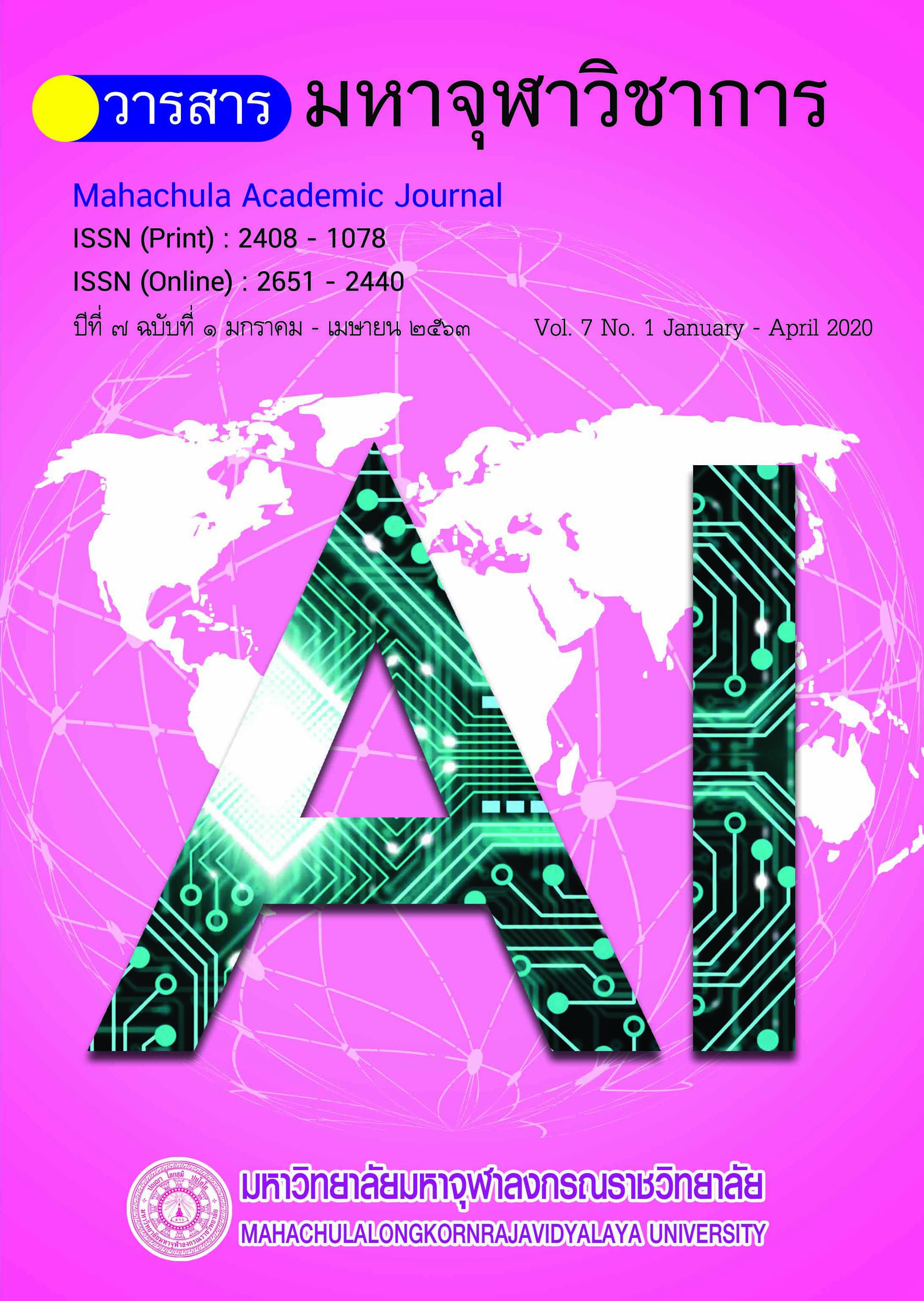A Structural Equation Model of Elderly Care in Family Following Buddhist Psychology
Main Article Content
Abstract
care with Bhavana IV, 5) having self-development and 6) assessing themselves. Structural equation model of elderly care in family following Buddhist Psychology fit with the empirical data. In conclusion, elderly can have good quality of life usually comes from elderly care qualification with Iddhibada IV mediated by elderly care in family following Buddhist Psychology.
Article Details
References
นันทิยา ใจเย็น. “แนวทางการพัฒนาคุณภาพชีวิตของผู้สูงอายุที่พิการในพื้นที่ของเทศบาลตําบลท่าไม้ อําเภอท่ามะกา จังหวัดกาญจนบุรี”. การค้นคว้าอิสระวิทยานิพนธ์รัฐประศาสนศาสตรมหาบัณฑิต สาขาวิชารัฐประศาสนศาสตร์. บัณฑิตวิทยาลัย: มหาวิทยาลัยศิลปากร, ๒๕๕๗.
นารีรัตน์ จิตรมนตรี วิไลวรรณ ทองเจริญ และ สาวิตรี ทยานศิลป์. “ตัวแบบการดูแลผู้สูงอายุที่ดีของครอบครัวและชุมชนเมืองและกรุงเทพมหานคร”. รายงานวิจัย. สถาบันวิจัยระบบสาธารณสุขและมูลนิธิสถาบันวิจัยและพัฒนาผู้สูงอายุไทย, ๒๕๕๒.
พระพรหมคุณาภรณ์ (ป.อ.ปยุตฺโต). พจนานุกรมพุทธศาสตร์ ฉบับประมวลธรรม. พิมพ์ครั้งที่ ๑๒. กรุงเทพมหานคร: โรงพิมพ์มหาจุฬาลงกรณราชวิทยาลัย, ๒๕๔๖.
พระพรหมคุณาภรณ์ (ป.อ.ปยุตฺโต). พุทธธรรม ฉบับปรับขยาย. พิมพ์ครั้งที่ ๔๑. กรุงเทพมหานคร: ผลิธัมม์ในเครือบริษัท สำนักพิมพ์เพ็ทแอนด์โฮม จำกัด, ๒๕๕๘.
มูลนิธิสถาบันวิจัยและพัฒนาผู้สูงอายุไทย. สถานการณ์ผู้สูงอายุไทย พ.ศ.๒๕๕๙. นครปฐม: บริษัท พริ้นเทอรี่ จำกัด, ๒๕๖๐.
รัถยานภิศ พละศึก และเบญจวรรณ ถนอมชยธวัช. “ตัวแบบของครอบครัวในการดูแลผู้สูงอายุ”. วารสารเครือข่ายวิทยาลัยพยาบาลและการสาธารณสุขภาคใต้ ปีที่ ๔ ฉบับที่ ๓ (กันยายน-ธันวาคม๒๕๖๐) : ๑๔๗.
ลำพอง กลมกูล. “อิทธิพลของกระบวนการสะท้อนคิดต่อประสิทธิผลการวิจัยปฏิบัติการในชั้นเรียน: การวิจัยแบบผสมวิธี”. วิทยานิพนธ์ครุศาสตรดุษฎีบัณฑิต (ภาควิชาวิจัยและจิตวิทยาการศึกษา: จุฬาลงกรณ์มหาวิทยาลัย, ๒๕๕๔.
ศศิพัฒน์ ยอดเพชร. ผู้ดูแลผู้สูงอายุ: การสังเคราะห์องค์ความรู้. กรุงเทพมหานคร: โรงพิมพ์มหาวิทยาลัยธรรมศาสตร์, ๒๕๔๗.
ศศิพัฒน์ ยอดเพชร และคณะ. “ตัวแบบการดูแลผู้สูงอายุที่ดีของครอบครัวและชุมชนชนบทไทย”. รายงานวิจัย. สถาบันวิจัยระบบสาธารณสุข และมูลนิธิสถาบันวิจัยและพัฒนาผู้สูงอายุไทย, ๒๕๕๒.
สมบูรณ์ วัฒนะ. การดูแลบิดามารดาสูงอายุตามหลักคำสอนในพระพุทธศาสนาของครอบครัวไทยพุทธ. วารสารวิจัยเพื่อพัฒนาชุมชน. มนุษยศาสตร์และสังคมศาสตร์ ปีที่๑๐ ฉบับที่ ๒ (เมษายน-มิถุนายน ๒๕๖๐): ๗๘.
สำนักงานคณะกรรมการพัฒนาการเศรษฐกิจและสังคมแห่งชาติ. แผนพัฒนาเศรษฐกิจและสังคมแห่งชาติ ฉบับที่สิบสอง พ.ศ. ๒๕๖๐ – ๒๕๖๔. กรุงเทพมหานคร: โรงพิมพ์สำนักนายกรัฐมนตรี, ๒๕๖๐.


